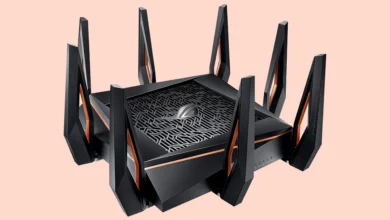Chromebooks: The Ultimate Guide to Google’s Lightweight Laptops

Chromebooks have become a popular choice for students, professionals, and casual users alike. Built for speed, efficiency, and ease of use, these devices run on Google’s Chrome OS, offering a streamlined and secure computing experience. Whether you’re new to Chromebooks or considering one as your next device, this guide will help you understand what makes Chromebooks unique, who they’re best for, and what to consider before buying.
1. What is a Chromebook?
Chromebooks are laptops powered by Chrome OS, a lightweight operating system developed by Google. Unlike traditional laptops, Chromebooks are cloud-centric, meaning that they rely on internet connectivity and cloud-based apps, such as Google Workspace (Docs, Sheets, Slides) and third-party applications available through the Chrome Web Store and Google Play Store.
- Cloud-Based System: Most files, applications, and data are stored in the cloud, keeping the device itself uncluttered and fast.
- Lightweight and Efficient: The Chrome OS is designed to boot up quickly, handle multitasking efficiently, and update automatically, making Chromebooks ideal for users who need a quick and easy device for online tasks.
2. Key Features of Chromebooks
Chromebooks are known for several distinctive features that set them apart from traditional laptops.
- Fast Boot and Speed: Most Chromebooks boot up in under 10 seconds due to Chrome OS’s lightweight design and minimal software.
- Long Battery Life: Many Chromebooks boast an impressive battery life, often lasting between 10 to 12 hours on a single charge.
- Google Integration: With Chrome OS, users have seamless access to Google’s suite of applications, including Gmail, Google Drive, and Google Photos.
- Built-in Security: Chromebooks are equipped with automatic updates, sandboxing, and virus protection, making them a secure choice.
3. Who Should Consider Buying a Chromebook?
While Chromebooks offer plenty of advantages, they aren’t suited for everyone. Here’s a look at the types of users who might benefit most from a Chromebook:
- Students and Educators: Chromebooks are widely used in schools due to their affordability, ease of use, and integration with Google Classroom. Many models are designed to withstand rugged use and are equipped with educational tools.
- Frequent Travelers: With their lightweight build and long battery life, Chromebooks are ideal for users who need a portable device to stay connected on the go.
- Casual Users: Chromebooks are perfect for those who primarily use their device for browsing, streaming, emailing, and other online activities.
- Remote Workers: Chromebooks are a great choice for those whose jobs revolve around online tasks and cloud-based applications, especially if their work can be done within a web browser.
4. Popular Chromebook Models and Specifications
Chromebooks are available in a wide range of models, catering to different budgets and needs. Here are a few notable models:
- Google Pixelbook Go: Known for its sleek design, this high-end Chromebook offers excellent performance with up to 16GB of RAM and a battery life of up to 12 hours. Its backlit keyboard and 1080p display make it a popular choice for those seeking a premium experience.
- Acer Chromebook Spin 713: This versatile 2-in-1 model is great for users who want both laptop and tablet functionality. The Spin 713 features a sharp 13.5-inch display and up to 10 hours of battery life.
- Samsung Galaxy Chromebook 2: With a QLED display and Intel Core i3 processor, the Galaxy Chromebook 2 is a visually stunning choice, especially for media consumption. It also offers stylus support, making it an excellent option for creative users.
- Lenovo Chromebook Duet: A budget-friendly 2-in-1 option, the Lenovo Duet is popular for its portability and affordability. It’s an ideal choice for students and casual users, offering an 8-hour battery life.
5. Advantages of Using a Chromebook
The rise in popularity of Chromebooks can be attributed to the many benefits they offer:
- Affordability: Chromebooks are typically more affordable than traditional laptops, making them accessible to a wide range of users.
- Ease of Use: With a simple interface, Chromebooks are ideal for beginners and those looking for a straightforward computing experience.
- Seamless Updates and Security: Chromebooks automatically update in the background, ensuring that your device is always secure and up-to-date.
- Integration with Google Ecosystem: For those who already use Google’s suite of applications, Chromebooks offer a highly integrated experience.
6. Limitations of Chromebooks
Despite their many advantages, Chromebooks are not the right fit for every type of user. Here are some limitations to consider:
- Limited Offline Capabilities: Since Chromebooks rely heavily on cloud-based applications, some functionalities are restricted when offline. However, many Google apps, including Google Docs, now have offline modes.
- Lack of High-End Software Compatibility: Chromebooks are not ideal for users who rely on software like Adobe Photoshop or other high-end video editing tools, as Chrome OS doesn’t support these desktop applications.
- Low Storage Capacity: Most Chromebooks come with limited internal storage, typically around 32GB to 64GB, as they are designed for cloud storage. Users who need large local storage may find this limiting.
- Game Limitations: While some Android games are available on Chromebooks, they don’t support resource-heavy games that are common on Windows or Mac devices.
7. Setting Up and Customizing Your Chromebook
Getting started with a Chromebook is simple and fast. Here are a few tips for setup and customization:
- Google Account Sign-In: A Google account is required to use a Chromebook, allowing users to sync their Chrome settings, bookmarks, and Google Drive files.
- Enable Offline Mode: To access files offline, enable offline mode for Google Docs, Sheets, and other important applications.
- Install Android Apps: Most Chromebooks now support Android apps, allowing users to download apps from the Google Play Store.
- Customize the Launcher: Chromebooks allow you to personalize the app launcher and toolbar, giving easy access to your most-used apps.
8. Are Chromebooks Right for You?
Chromebooks are ideal for users looking for a straightforward, budget-friendly device for online tasks, from students and educators to frequent travelers and remote workers. However, those who rely on high-powered applications, significant offline work, or large local storage may find Chromebooks limiting.
Conclusion
Chromebooks offer a unique and efficient computing experience with a focus on simplicity, speed, and security. Their affordable price range, coupled with features like cloud-based storage and integration with Google Workspace, makes them an attractive option for various users. However, if you need software-heavy applications or high local storage, a traditional laptop might be a better choice. With their continued evolution and a range of models suited to different needs, Chromebooks have carved out a valuable niche in the world of personal computing.



